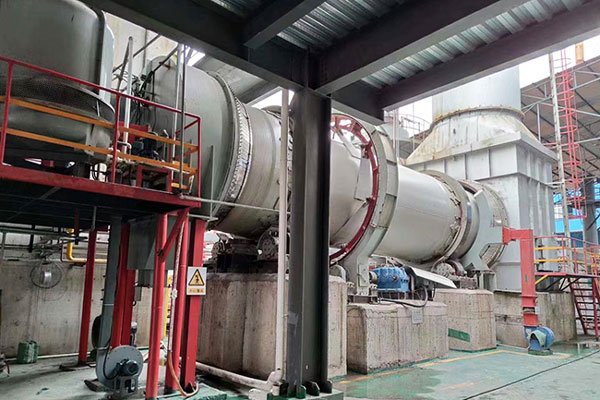Rotary kiln incinerator manufacturers play a pivotal role in equipping modern science laboratories with thermal treatment systems designed for safe, efficient disposal of hazardous and special waste streams. A rotary kiln incinerator is a heavy-duty, continuously operating system that combines controlled high-temperature combustion with mechanical agitation to ensure complete oxidation of complex materials. For science laboratories that generate chemical residues, contaminated solids, or biohazardous byproducts, these systems provide a reliable path to destroy hazardous constituents while minimizing secondary contamination risks.
Manufacturers focused on laboratory-facing applications prioritize design features that align with stringent safety and compliance requirements. Typical kiln designs incorporate robust refractory linings, precise temperature control, and staged combustion to reduce the formation of dioxins and other persistent pollutants. Secondary combustion chambers and advanced flue gas treatment — including quench systems, scrubbers, and particulate filtration — are standard to meet evolving emission regulations. For laboratory environments, emphasis is placed on tight integration with existing ventilation systems, safe ash handling, and automated shutdown procedures to protect personnel and infrastructure.
Quality manufacturing also addresses operational logistics:
Modular construction for easier installation, automated feed systems for controlled input, and integrated monitoring for temperature, gas composition, and system diagnostics. These capabilities allow laboratory personnel to focus on core research activities while relying on proven engineering to manage waste safely. Many rotary kiln incinerator manufacturers offer training, spare parts supply, and preventive maintenance programs specifically tailored to laboratory schedules, minimizing downtime and ensuring predictable lifecycle costs.
From a materials and process perspective
The choice of construction alloys, refractory grades, and burner technology impacts both efficiency and lifecycle costs. Manufacturers optimize heat recovery systems and insulation to enhance thermal efficiency, reduce fuel consumption, and lower operating expenses. In addition to standard models, bespoke configurations are often available to accommodate unique laboratory waste profiles, space constraints, or integration with existing ventilation and effluent treatment lines. This flexibility is especially important for specialized research facilities where waste streams vary across experiments and projects.
The partnership between science laboratories and trusted manufacturers also extends to documentation and compliance support. Comprehensive safety manuals, validation procedures, and emissions reporting tools help labs demonstrate adherence to local environmental and occupational safety standards. Manufacturers frequently collaborate with laboratory managers and environmental officers to develop standard operating procedures that align waste handling with institutional policies and legal requirements, supporting audits and permitting processes.
Sustainability considerations are increasingly central to procurement decisions.
Leading manufacturers incorporate energy recovery, optimized combustion control, and low-emission technologies to reduce the facility’s carbon footprint. They also design systems that facilitate the safe handling and disposal of ash residues and byproducts, enabling laboratories to close the loop on hazardous waste management responsibly. Choosing manufacturers with proven lab experience reduces downtime, ensures regulatory compliance, and provides scalable solutions that evolve alongside research programs and changing waste management needs, and operational confidence.
Ultimately, selecting reputable rotary kiln incinerator manufacturers ensures that science laboratories receive systems engineered for reliability, safety, and compliance. Through focused design, rigorous testing, and responsive support, manufacturers deliver solutions that protect personnel, preserve research integrity, and uphold environmental stewardship in demanding laboratory environments.
Conclusion:
Selecting experienced rotary kiln incinerator manufacturers gives science laboratories dependable waste-treatment systems that prioritize safety, emissions control, and operational efficiency. With proper integration, maintenance, and regulatory support, these systems protect personnel, preserve research continuity, and advance institutional sustainability goals while minimizing environmental impact and lifecycle costs and ensure long-term resilience.
Related Reads
- Custom Fitness App Development: Build the Fitness App Your Users Actually Want
- Beginner-Friendly Fonts: The Best Craft Font Picks for Kids and Teachers
- Effortless Relocations: Movers and Packers in Jumeirah, Dubai
- Best Laptop for Video Editing Under 50000 in India 2025: Latest Models Compared
- Cupronickel Tubes Manufacturing Plant Project Report 2025, Machinery, Cost Analysis and Raw Material Requirements
- How Do Businesses Measure Success in the Best Paid Social Campaigns?



